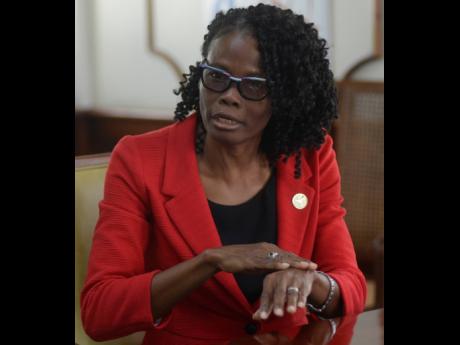Taxis remain defiant - Some still refusing to transport nurses
Though issued a strict warning on the weekend that their licences could be confiscated, some taxi operators have continued to deny nurses their services.
“We have gotten other reports across other parishes but not Kingston of the practice continuing,” said president of the Nurses Association of Jamaica, Carmen Johnson.
In light of confirmed cases of COVID-19 in Jamaica, taxi drivers began barring nurses from their vehicles, out of fear that they may contract the respiratory virus.
“On Monday, during a conversation on Power 106, the president for JATOO indicated their concerns for education and information, and he said that was part of their challenge and why his members have taken the stance they have taken,” Johnson said.
JATOO is the Jamaica Association of Transport Owners and Operators.
She said the nurses association subsequently made contact with the health ministry and the team has promised to make contact with the JATOO president, to commence dialogue about the education of its members.
“It doesn’t make sense that the healthcare worker who is putting himself or herself on the line cannot get access to basic transportation because of ignorance by the Jamaican people. I had to call a private vehicle to pick me up and pay extra fare just because the taxi refused to carry me as a passenger,” a Kingston nurse recounted of her recent experience.
A registered nurse who travels from Priory to St Ann’s Bay for work said she has not experienced any discrimination from taxi operators.
“The taxi drivers are well known to me so they treat me like family. However, I heard other colleagues complaining about their bad experiences which caused them to be late in two instances,” she said.
Relying on family
The nurse explained that to avoid the possibility of being denied transportation, those nurses are now relying on family members to take them to and from work.
This predicament has once again sparked the debate about nurses wearing their uniforms in public.
A nurse employed at the Bustamante Hospital for Children explained that while nurses do take precautions on the job and wear gowns, she understands the public’s view.
“They have a point; they could allow us to wear our uniforms and then provide scrubs for us to wear on the job then change back to our uniforms when the shift is over,” she said.
A female nursing student at The University of the West Indies, who shared the same view, said it is traditional for nurses to wear their uniforms in public.
“They wouldn’t easily transfer microorganisms from their homes to work or especially from work to home or cause cross- contamination when they come in contact with others on the road,” she said.
One Kingston nurse reasoned, “It’s the notable identifier to say that you are doing nursing. In times of fear and panic, people don’t think logically. Even if we wear plain clothes, if the hospital is the point of contention, the bacteria would get on the clothes when you go in the hospital to change.”

